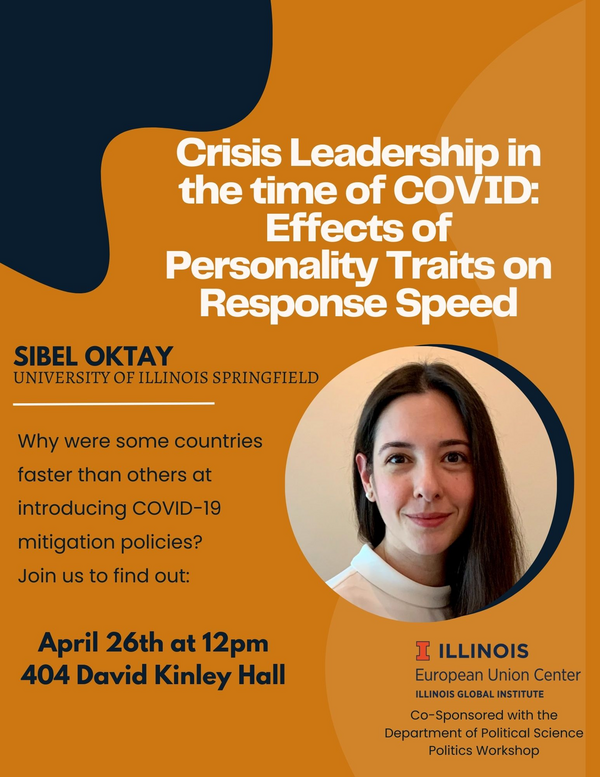Politics Workshop: Crisis Leadership in the Time of Covid: Effects of Personality Traits on Response Speed
Apr 26, 2024 12:00 pm
404 David Kinley Hall

- Sponsor
- Department of Political Science; European Union Center
- Views
- 278
- Abstract: Why were some countries faster than others at introducing COVID-19 mitigation policies? Existing research shows that leaders are central to defining and making sense of crises, which then shapes their governments’ crisis response. I argue that crisis-sense-making depends on leaders’ personality traits pertaining to how they perceive their power status, collect and process information, and interact with their environment, subsequently influencing their governments’ crisis response speed. I test this argument in the context of the European experience with COVID- 19, combining an original Leadership Traits Analysis dataset of thirty-two leaders with the Oxford COVID-19 Government Response Tracker data. I show that leaders who were highly self-confident or exhibited a tendency to challenge constraints were significantly slower at introducing pandemic mitigation policies. Leaders who were open to information were significantly faster to do so. I also show that policy emulation between countries over time dissipated the slowing effects of the leaders’ need for power and conceptual complexity on response speed. The results present new and systematic evidence on how leader personality shaped pandemic policy-making, contributing to the literature on crisis policy-making and political leadership. They also offer science advisors food for thought on how to communicate with leaders.
About the speaker: Sibel Oktay is Associate Professor, former Chair of the Political Science Department and former Director of the School of Politics and International Affairs at the University of Illinois at Springfield. She is also a Nonresident Senior Fellow of Public Opinion and Foreign Policy at the Chicago Council on Global Affairs. She is a scholar of foreign policy analysis with regional interests in Europe, the U.S., and the Middle East. Her work investigates how domestic politics impact foreign policy, the effect of foreign policy on public opinion and voting behavior, and how leaders influence these relationships.